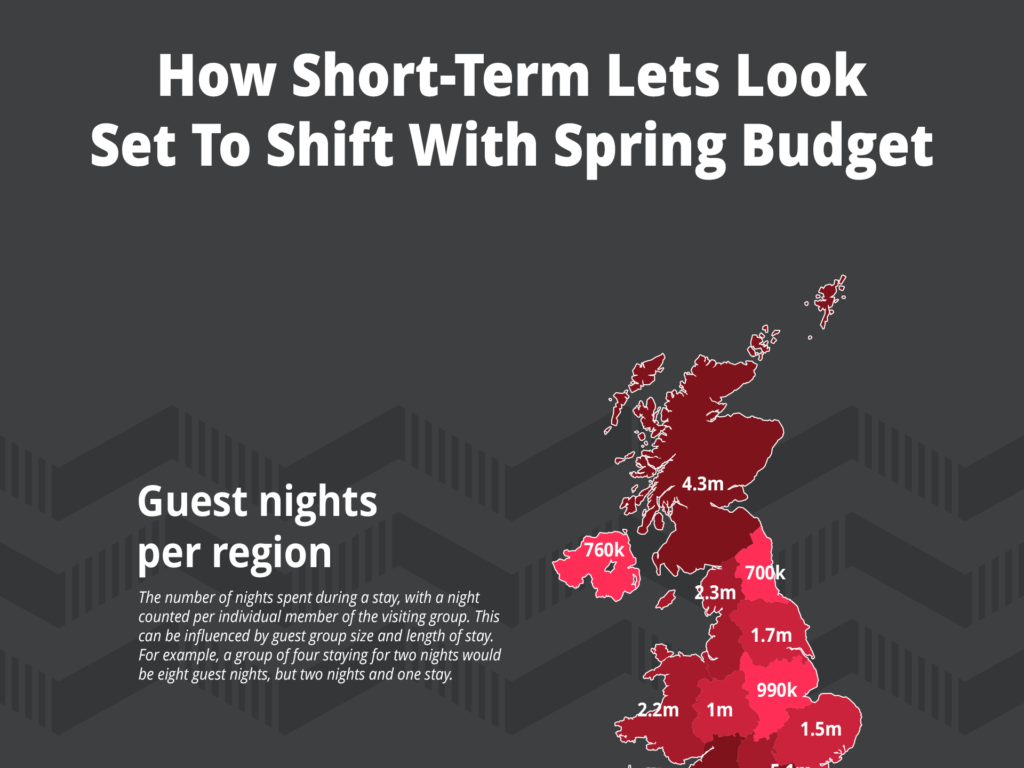Property experts Watsons Property Group predicts more property owners will move away from short-term lets following news that tax incentives for landlords with holiday lettings will be scrapped.
As part of the Spring Budget 2024, it was announced that the Furnished Holiday Lettings (FHL) tax regime will be abolished in April 2025. Owners of FHLs currently enjoy more favourable tax advantages compared to those who let out residential properties to long-term tenants. However, next year’s rule change means those who rent out a property for short-term stays (whether through platforms like Airbnb and Vrbo or privately) will find themselves financially worse off.
As property owners question the future of short-term lets, particularly in less competitive markets with lower occupancy rates, Watsons Property Group believes many may look to long-term rentals as a viable alternative. Longer tenancies offer guaranteed, regular income and help fulfil demand for local housing, the lack of which is behind the government’s plans to scrap the FHL tax regime.
The short-let landscape
Dropping demand for holiday lets could also be a factor that drives property owners to sell up or rent to long-term tenants.
A recent report from Visit Britain shows a reduced demand for short-term lets in the UK. Tracking reservation data from Airbnb, Booking.com, Vrbo, and Tripadvisor revealed that 2023 occupancy rates lagged between -1 and -12 percentage points behind pre-COVID occupancy rates in 2019.
Regional trends also point to areas where property owners might be the first to make the shift from short-term to long-term lets.
After investigating data from Visit Britain on the most visited towns and other areas for domestic overnight trips and day visits in England, Watsons Property Group found Shropshire, Cambridgeshire, and South Yorkshire are the least lucrative and least popular short-term let destinations (add link to blog post here).
As the tax changes announced in the Spring Budget draw closer, owners of short-term lets in these areas may be the first to put their properties on the market or make the switch to long-term lettings.
Visit Britain’s data also highlights how some types of location may be worse affected by a lack of demand for short-term lets. Its studies showed that city breaks account for 40% of holiday lets, towns 24%, and seaside and countryside locations 17% each. Property owners in rural and coastal areas or smaller towns and cities may be more inclined to move away from the short-term rental market, especially considering the Spring Budget announcement.
Opportunities for landlords
For those who don’t want to sell up, longer tenancies offer an opportunity to make their portfolios more profitable in the wake of the Spring Budget. Long-term lets provide more stable income than holiday lets, guaranteeing a consistent and reliable revenue stream for landlords, which can help property owners enjoy greater financial security and plan for the future more effectively.
Longer lease agreements also mean a reduced turnover of tenants. Owners will no longer have to spend time marketing their property or securing regular bookings and will also save on the costs associated with a holiday let, like utility bills, cleaning, and ongoing maintenance.
The application process also means it’s easier for property owners to vet potential long-term tenants based on references, rental history, and reliability, which should in theory result in a higher quality of tenants. In turn, landlords can build a more positive relationship with their tenants. These tenants are also more likely to take better care of the property and treat it as their home, which can further reduce maintenance costs.
Fixing the housing crisis
The ongoing housing crisis in the UK has sparked calls for greater restrictions on short-term lets, particularly in tourist hotspots where local people may struggle to secure housing.
The changes announced in the Spring Budget, along with the government’s Levelling Up campaign and plans for short-term lets to require planning permission, aim to help people access affordable housing in areas where short-term lets may have dominated the property market. Making short-term rentals less lucrative for property owners is part of a concerted effort to free-up housing stock in local communities for local use.
In this landscape, more property owners may feel motivated to switch from short-term to long-term rentals, appealing to local communities while securing guaranteed regular income and enjoying greater stability.
Those who have enjoyed the financial rewards and favourable tax advantages of owning a short-term holiday let may be disheartened by the Spring Budget. However, long-term letting offers a viable, sustainable alternative for property owners that can also help address the housing crisis.
Whether you are a holiday home owner looking to become a first-time landlord or a seasoned investor, Watsons Property Group offer a range of services to make letting a property simple and straightforward. Visit the website to find out more.


